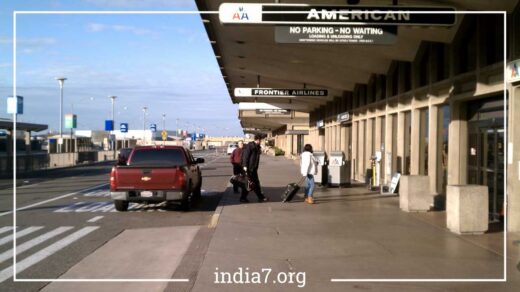Exploring Belgium: A Comprehensive Travel Guide for an Enchanting European Journey

Belgium
Belgium, a charming nation nestled in the heart of Western Europe, boasts a diverse landscape that enchants visitors with its contrasting beauty. From the gentle flat coastal plains in the northeast to the rugged majesty of the Ardennes Forest in the southeast, Belgium is a country that delights in its natural diversity.
The country proudly embraces multilingualism, with Dutch, Flemish, French, and German serving as its official languages. Among these, Dutch is the most widely spoken, followed closely by French. This linguistic diversity is a testament to Belgium’s rich cultural tapestry.
Belgium’s climate exhibits a degree of predictability. The months spanning from April to September usher in the warmest temperatures, making it the ideal time for outdoor activities and exploration. However, the rest of the year sees a climate characterized by humidity and gray skies, explaining the ubiquitous presence of umbrellas and raincoats among the locals. Given Belgium’s coastal location, it’s prudent for visitors to come prepared with adequate rain protection when planning a visit during the rainy season.
In case of emergencies, the country has a well-established emergency hotline. Simply dial 100 or 112 to reach the necessary assistance promptly.
Culture
One of the most endearing aspects of Belgian culture is its welcoming and English-friendly demeanor. Belgians are known for their hospitality, and they often go out of their way to make foreigners feel at ease. When interacting with locals, you’ll find that many of them are proficient in English, making communication a breeze for international travelers.
Belgium’s culture places great emphasis on politeness and courtesy. When invited to a Belgian home for dinner or any social gathering, it’s customary to bring a small gift or, at the very least, a bouquet of flowers. This gesture is a sign of appreciation for the hospitality extended to you.
Smoking in public spaces is generally acceptable in Belgium. However, it’s always advisable to observe local customs and etiquettes, especially in enclosed public areas where smoking may be restricted.
Shopping
For those inclined to indulge in retail therapy, Belgium offers a plethora of shopping opportunities. The country’s major shopping centers include Brussels, Antwerp, Bruges, Ostend, Namur, Mons, Liège, Ghent, and Mechelen. Each of these cities has its own unique shopping experience to offer.
Belgium is celebrated for its artisanal craftsmanship, and this is particularly evident in the goods it produces. Visitors can explore a wide array of specialty items, including ceramics and hand-beaten copperware from Dinant, intricate lacework from Bruges, exquisite crystal from Val Saint Lambert, and beautifully crafted woodcarvings from Spa. However, it’s Belgium’s world-famous chocolates that truly steal the spotlight. From pralines to truffles, Belgian chocolates are a delight for the senses, and they make for excellent souvenirs to take home.
For those with a penchant for fine jewelry, Antwerp is the place to be. This city is renowned for its diamond trade, and you’ll find an exquisite selection of diamonds, making it an ideal destination for engagement ring shopping or acquiring a timeless keepsake.
Eating Out
Exploring Belgium’s culinary scene is an adventure in itself. Belgian cuisine is characterized by its hearty and flavorsome dishes, with a particular emphasis on meat-based fare. One of the specialties that may pique your curiosity is horse and rabbit meat dishes, which are readily available at many restaurants. While these dishes might not be to everyone’s taste, they offer a unique glimpse into the country’s culinary traditions.
However, Belgium’s culinary offerings extend far beyond horse and rabbit meat. Visitors can savor a diverse range of ethnic foods from various corners of the world. Among these, the most famous is arguably the beloved combination of “frites” (fries) and mayonnaise. A local delicacy known as a “mitraillette” takes this pairing to the next level. It consists of a substantial bun filled with crispy fries, succulent donair meat, and a generous drizzle of garlic sauce. For vegetarians, don’t hesitate to request a meat substitute to enjoy this indulgent treat.
When dining at a restaurant in Belgium, it’s customary to leave a tip for the service staff. Additionally, keep in mind that the bill will include a value-added tax (VAT). Tipping is a way to express your satisfaction with the service, and it is appreciated by the hardworking restaurant staff.
Beyond restaurants, Belgium has a unique tradition regarding tipping in certain public spaces. At cinemas, it’s customary to leave a tip of €0.50 for the attendant who assists you during your movie experience. Similarly, when using public toilets, a small tip of €0.25 is a considerate gesture of appreciation for the cleanliness and maintenance of these facilities.
Electricity
Belgium adheres to a standardized electrical system with a voltage of 230 V and a frequency of 50 Hz. Travelers from countries with different electrical standards may need voltage converters and plug adapters to ensure their devices function seamlessly during their stay.
Travel
Belgium boasts well-developed transportation infrastructure, making it easy for travelers to explore the country and connect to other European destinations.
Delta Air Transport has recently launched SN Brussels Airlines, a European airline that offers convenient access to more than 58 destinations across Europe and worldwide. The primary gateway to Belgium is Brussels Zaventem Airport, located just 12 km from the heart of the capital city, Brussels. The journey from the airport to the city center typically takes around 35 minutes, ensuring a hassle-free transition from your flight to your destination.
Brussels Zaventem Airport offers a comprehensive range of services and amenities for travelers. These include duty-free shops, ample car parking facilities, convenient taxi booking services, a variety of car rental options, banking services, a post office, an assortment of dining establishments, and even medical assistance for any unexpected health concerns. Additionally, travelers can access internet and fax services, providing a convenient means of staying connected or attending to urgent business matters.
For those who prefer public transportation, the Airport City Express train is a reliable option. This train service efficiently transports passengers to three of Brussels’ main railway stations: Brussels North, Central, and South. Buses also operate regularly from the airport, offering an alternative mode of transportation for travelers. Taxis are readily available and can be hired directly outside the airport’s arrival hall. It’s worth noting that tipping taxi drivers is considered customary and appreciated for their service.
Another airport option, Brussels South Charleroi Airport, is conveniently located 5 km from Charleroi and 46 km from Brussels. This airport serves as a hub for Ryanair, a low-cost airline that offers budget-friendly deals to several European destinations. Travelers passing through Brussels South Charleroi Airport can take advantage of a range of services, including bus and train connections, a café for refreshments, car rental facilities, and duty-free shops to satisfy their shopping cravings.
Ostend Airport, positioned just 5 km from the city of Ostend, offers additional accessibility for travelers. The airport features amenities such as car parking, car rental services, duty-free shops, and dining options, ensuring that your travel experience is as seamless as possible.
If Antwerp is your destination, you’ll be pleased to know that Antwerp Airport is conveniently situated a mere 2 km from the city center. Regular buses run from the airport to Brussels Central Station, ensuring efficient transportation options for travelers.
Liege Airport, located 5 km from the city of Liege, is another airport offering its services to travelers. Regular bus services provide convenient access to the city center, making it easy for visitors to embark on their Belgian adventures.
When planning your travel budget, it’s essential to factor in departure taxes, which vary depending on the airport you depart from. As of the latest information available, the departure tax at Brussels Zaventem Airport is €20.93, Brussels South Charleroi Airport charges €3.49, while Ostend and Antwerp airports levy a departure tax of €10. Meanwhile, at Liege Airport, departing passengers are subject to a departure tax of €7.
Belgium also enjoys an extensive network of high-speed trains operated by Thalys. These trains connect Brussels with various desirable destinations in France, including Bordeaux, Chambéry, Cannes, Marseille, Lyon, Nice, Valence, Perpignan, and Rennes. To secure your seat on these popular trains, it’s advisable to make advance reservations.
Belgium’s national railway operates throughout the day, providing frequent services to an array of European destinations. Whether you’re planning to explore neighboring countries like France, Germany, the Netherlands, Switzerland, Austria, Italy, Poland, the Czech Republic, or venture further afield to the United Kingdom, Belgium’s comprehensive railway system offers a reliable means of transportation. Travelers looking for flexibility and convenience can consider the Inter-Rail pass, a valuable option that allows residents who have been settled in Belgium for more than 6 months to explore nearly 29 European countries with ease.
Duty Free Items
Before embarking on your journey to Belgium, it’s essential to be aware of the duty-free allowances for various items. Visitors to Belgium can bring limited quantities of alcohol, tobacco, cigarettes, coffee, and tea without incurring customs duty. However, it’s crucial to check the specific limits for these items before packing them in your luggage.
While you can enjoy the convenience of bringing back some duty-free goods, it’s advisable to avoid transporting food items that are not preserved. Belgium, like many countries, imposes restrictions on the importation of perishable foodstuffs to safeguard public health and prevent the spread of diseases.
Final Thoughts
Belgium is a nation that beckons travelers with its rich cultural heritage, diverse landscapes, and warm hospitality. Whether you’re exploring the medieval streets of Bruges, indulging in the world’s finest chocolates, or savoring the unique flavors of Belgian cuisine, this European gem has something to offer every traveler.
As you plan your journey to Belgium, remember to embrace the local customs and traditions, from bringing a small gift when invited to a Belgian home to savoring the country’s culinary delights. With a well-connected transportation network and a welcoming atmosphere, Belgium invites you to embark on an unforgettable adventure that combines history, culture, and natural beauty.
So, pack your bags, prepare your taste buds for culinary delights, and get ready to explore the heart of Europe in the enchanting land of Belgium. Your Belgian adventure awaits!



